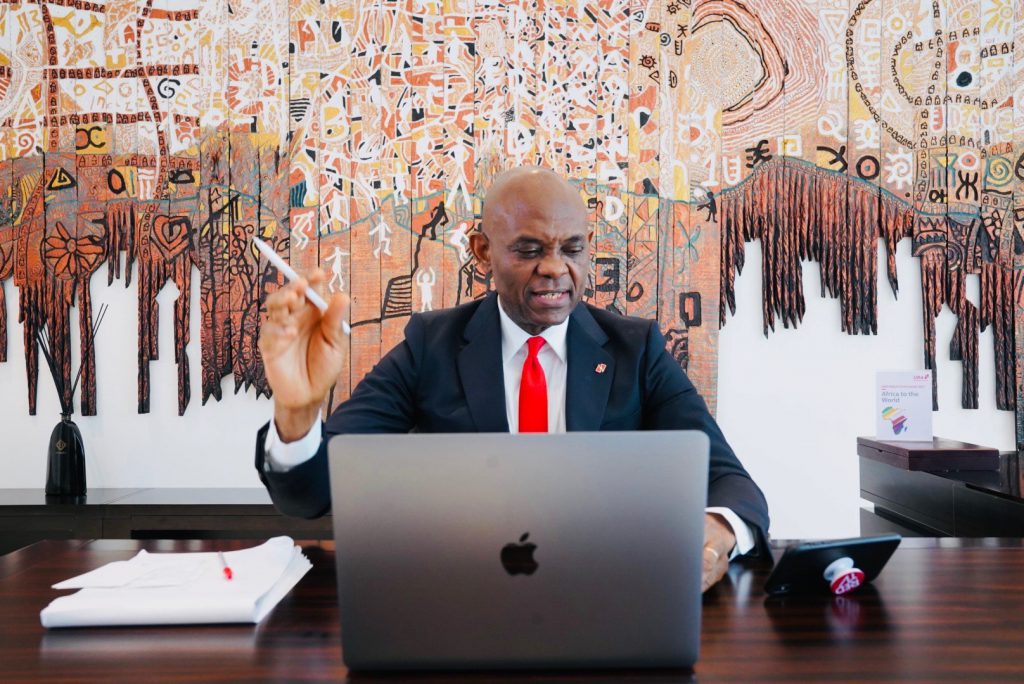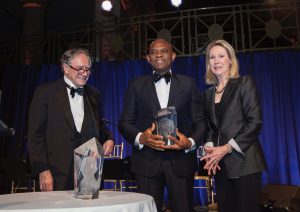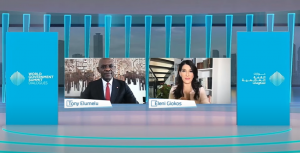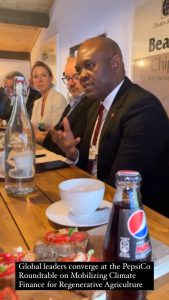Yesterday, at the 3rd United Bank for Africa Conversations (#UBAAfricaConversations) celebrating Africa Day, I was privileged to moderate a profoundly moving conversation, with some of Africa’s most prominent voices: Rwandan President, Paul Kagame, the World Trade Organisation’s Director-General, Dr. Ngozi Okonjo-Iweala; the World Health Organisation’s Director-General, Dr Tedros Adhanom Ghebreyesus; and International Finance Corporation Managing Director, Makhtar Sop Diop. It was humbling to be surrounded by such extraordinary African talent and UBA was honoured by their willingness to give their time and valuable insight.
The convening offered a unique perspective – with Africans for the first time occupying key seats at international institutions, we were able to have a wide ranging and penetrating session on trade, development and of course the pandemic and specifically how to achieve COVID-19 vaccine equity in Africa.
Celebrating Africa Day is especially important to me, as it is an opportunity to re-examine my own hopes and dreams for the continent. Our all too brief discussion focused on the important questions that would define our future. The theme was “Africa to the World”, and the enormous potential of the continent. My dear friend, President Kagame, whom I had not seen since we last hosted him at the Tony Elumelu Foundation Entrepreneurship Forum in Abuja, captured what so many of us feel succinctly: deprivation and poverty are not our identities – we are so much more. How profound! It is this vision that drives the work I do, this firm belief that we can rise above our current position and create societies that deliver the opportunities for prosperity and social good. We can. We must. There is no other alternative.
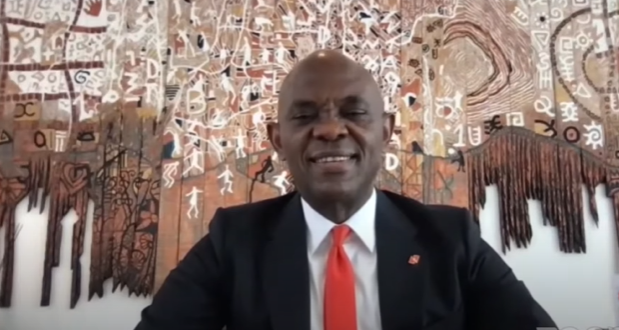
Our approach to socio-economic transformation on the continent needs to reflect this. If we say that poverty is not our identity, and we believe it, what are the things we are willing to do to secure our rightful identity? The IFC Chief Executive Officer, Makhtar highlighted the role of collaboration and is so right when he said that individual success only means something, if it is part of collective. How can we recentre our understanding of collaboration – seeing progress as an endeavour achieved by many, for the good of all?
Knowing that change is about collaboration and preparing to do whatever it takes requires a level of commitment we must embrace, and not run from. It is the refusal to be “risk-averse”, as my sister, Ngozi Okonjo-Iweala, advised. The change ahead requires using our combined resources as Africans; being inter-dependent in a highly positive way, in the most strategic way.
Dr Tedros underlined that Africa needs commitment from its people. #UBAAfricaConversations showed, I hope, how we, as Africans, can see that Africa can be transformed and the roles we all must play. Now, it is about how prepared we are to leverage the opportunities we know exist; how willing we are to generate homegrown solutions, foster valuable partnerships, establish unified forces and maintain positive mindfulness.
Every day, my dream for Africa is that we would begin to see ourselves, not for what we currently are, but for what we can be. I encourage all players – especially our youth, to carry the consciousness of this dream. Because by the very nature of our human capital, resilience and an extraordinary mindset, Africa will own and claim its rightful position in the world and our future.
